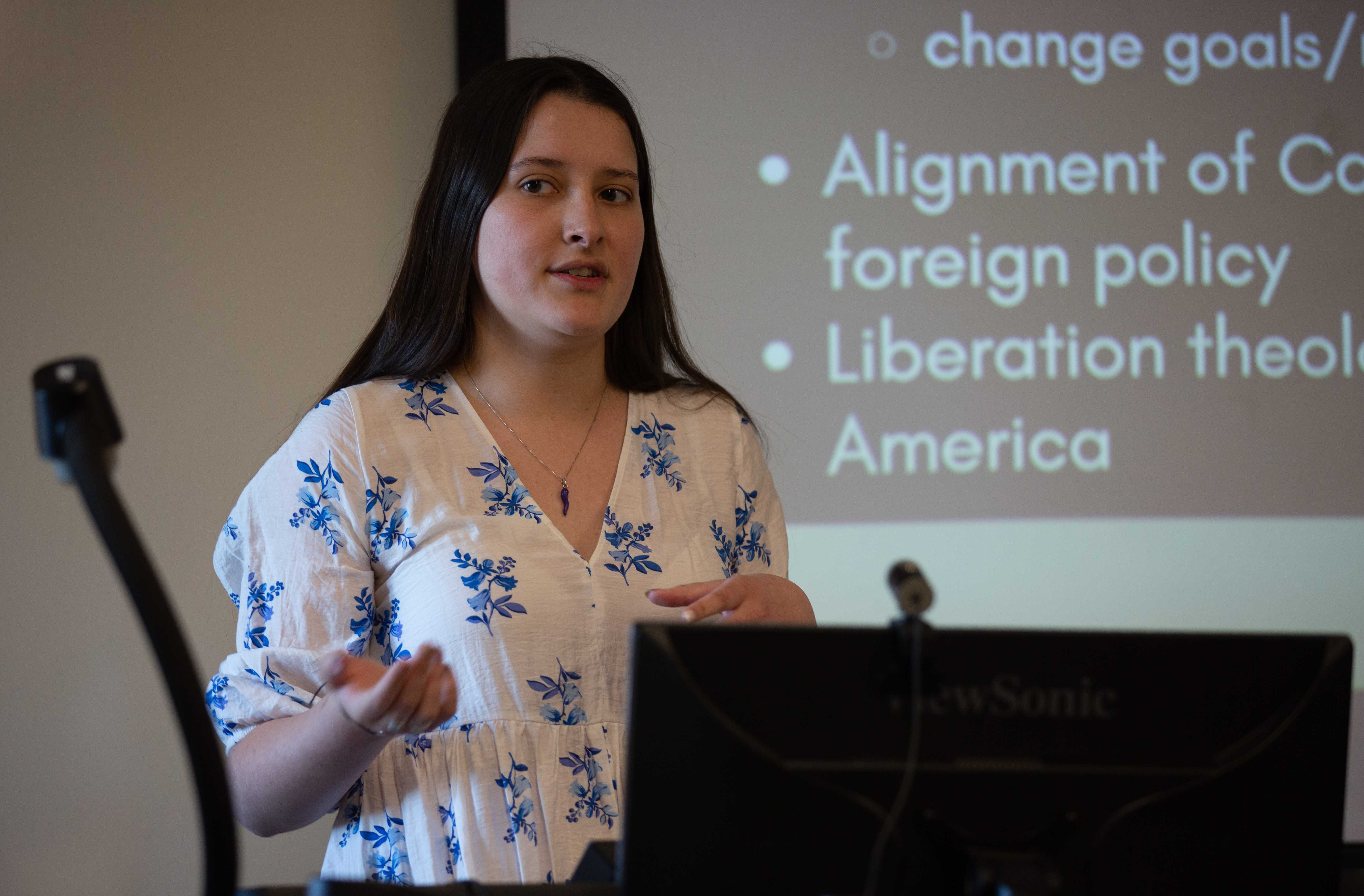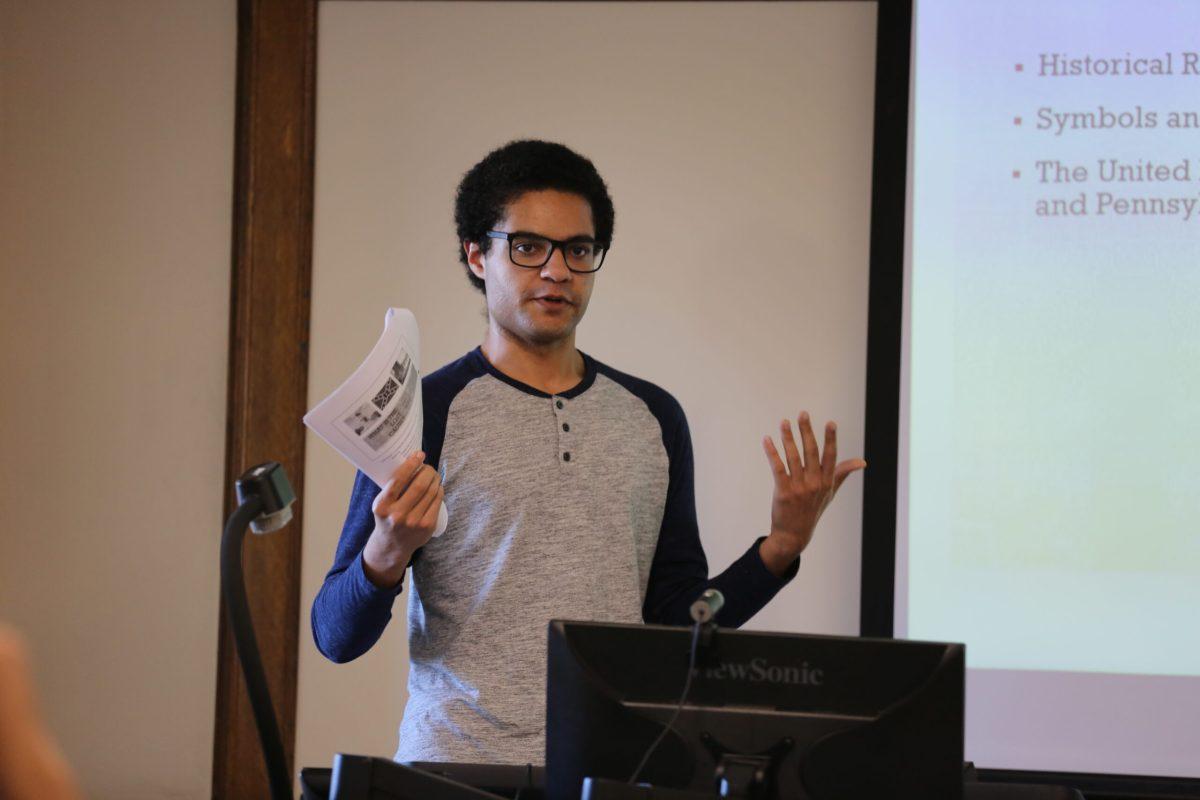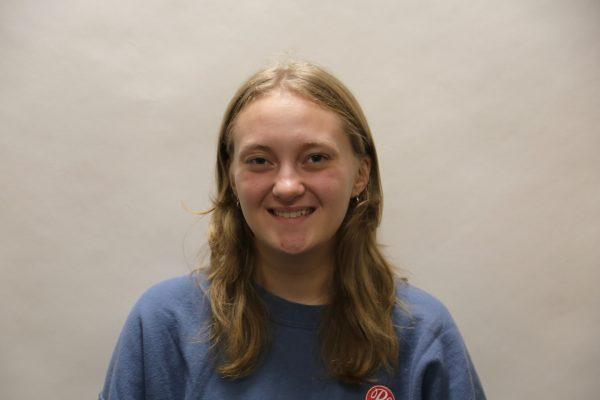The history department hosted a student research presentation, “Ideology, Identity, and Memory in American History: A Panel Discussion” April 12 in Bellarmine Hall.
Organized by Melissa Chakars, Ph.D., chair and professor of the department of history, the event featured the work of graduating history students who presented their ongoing theses for feedback from history department faculty and audience members.
The three presenters, Max Moyer ’23, Connor Mignano ’23 and Maura Burrell ’23, chose their topics based on academic experience and interest, which ultimately decided the theme and title of the panel.


Moyer’s thesis, “From Enslaved to American: Analyzing Changes in Black Identity in South Carolina during Reconstruction,” focuses on the identity of African Americans during the Reconstruction period in South Carolina.
“The main thing I found during my research, my initial research, was that people look back upon this period with a sort of racial bias, with a bad taste in their mouths, because the gains that were made, whether it be through legislation, through social movements, whatever it is, were rolled back 10 years later,” Moyer said.
Christopher Close, Ph.D., associate professor of history, said the panel was an opportunity to celebrate the students’ research and present it in the “format of what it would be like at a professional conference.”
“The panel is really just a chance for the students to present the research they’ve been doing all year, to talk about the findings,” Close said.
Mignano’s thesis, “Myth and Memory: The Lost Cause in Philadelphia,” focuses on the Lost Cause, the idea that the Confederate States of America went into the Civil War for other reasons besides slavery.
“The primary objective of my thesis is to present a side of American history that is often left rarely explored,” Mignano said. “Histories of the Lost Cause focus almost exclusively on the South, and while I think that this is a fair point of analysis, I don’t think it captures the full story.”
Burrell’s thesis, “US Catholic Institutions between Anti-Communism and Central American Solidarity,” focuses on how the Cold War affected Catholic universities throughout the decades, and St. Joe’s in particular.
“I think it’s important as members of the St. Joseph’s community [to know] a little bit about the history of St. Joe’s and how it was affected by the Cold War in general or just the world in general,” Burrell said. “I think we don’t tend to think about those things actively when we attend school.”
Burrell said the panel served as a great way for students working on their theses to gain insight and advice on how to move forward with their research.
“I think it’s just a good opportunity to be like, ‘Hey, this is what I’m doing, I think it’s really cool, and this is where I’m struggling’ and get pointers on how to make it better,” Burrell said.

















































